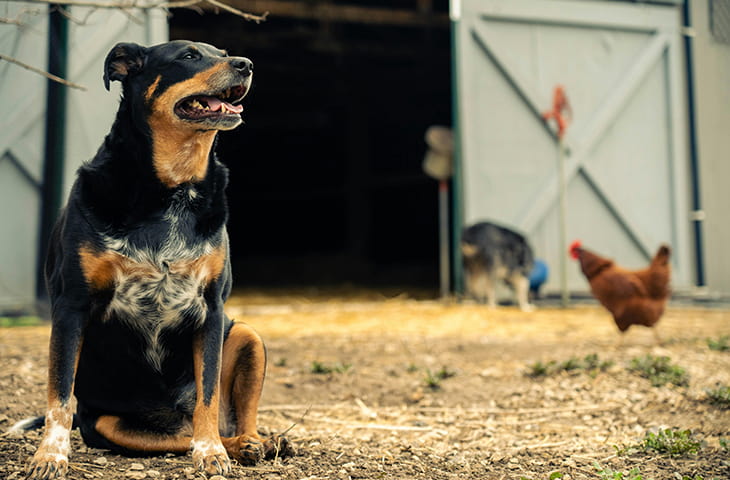This Deadly Threat To Dogs Is Now Found In Many Homes

12.28 BW Nonlead
https://www.barkandwhiskers.com/2019-05-05-nl-emergency-pet-marijuana-calls/
https://www.barkandwhiskers.com/p/7efd2e7c-a014-4d8f-9894-06bc92edb551/
Sadly, marijuana poisoning in animals seems to be keeping pace with the increased use of the drug by humans. The ASPCA’s Animal Poison Control Center (APCC) 24-hour emergency hotline recorded 208 marijuana-related calls in 2008, or about four calls a week. Ten years later in 2018 there were 1,800 calls — 35 a week or five calls a day.1
According to ASPCA Pro, in the first couple of months of 2019, the number of calls related to pets ingesting marijuana jumped 765% over the same period last year.2 In addition, the ASPCA Pro web page “Marijuana Toxicosis in Animals” had a 700% increase in views in January 2019 compared to January 2018.
The stunning increase in pet poisonings is “no surprise” to the APCC, given that more states have legalized both medical and recreational use of marijuana. According to APCC Medical Director Dr. Tina Wismer, the abundance of baked good edibles attracts dogs (cats are more apt to sample the plant in its bud form).
And if the edibles a dog ingests also happen to contain chocolate, which is often the case, he or she is being exposed to not just one, but two toxic substances. Indirect methods of exposure in pets include “careless disposal of marijuana remnants in public locations,” and believe it or not (and I’m sure we’d all rather not) — “consumption of human feces.”
Dogs Are 10 Times More Sensitive to THC Than Humans, and THC Levels in Marijuana Are Significantly Higher Than in the Past
The most potent psychoactive cannabinoid in marijuana is THC (delta-9-tetrahydrocannabinol), and dogs are up to 10 times more sensitive to THC than humans,3 because they have more cannabinoid receptors than any other animal we know of.4 This means trace amounts of THC — amounts most humans wouldn’t even notice — can be toxic for dogs. According to the Los Angeles Times:
“ … [W]hile the amount of THC … in professionally manufactured edibles is strictly regulated in states where they're sold legally, the potency of homemade treats is a wildcard. In California, edibles can't contain more than 100mg of THC per package, and 10mg per serving.”5
A 2012 retrospective study (2005 to 2010) analyzed trends in marijuana toxicosis in dogs living in states with legalized medical marijuana.6 The researchers looked at 125 family dogs in Colorado that had been seen by a veterinarian at one of two veterinary hospitals for known or suspected marijuana poisoning.
Their results revealed a significant correlation between the number of medical marijuana licenses and marijuana toxicosis cases seen at the two hospitals. The majority of dogs recovered, but two dogs who ingested edibles made with medical-grade THC butter didn’t survive.
Fast-forward to the present day, and one emergency animal clinic in California averaged 10 cases of marijuana poisonings a week in 2018,7 and it certainly wasn’t exceptional. According to the American Veterinarian journal, vets across the U.S. are reporting a significant increase in the number of pets — mostly dogs — being treated for marijuana intoxication.8
Not only has marijuana become available in novel forms such as foods, pills, oils and tinctures, but new hybrids and cultivation techniques have resulted in plants with significantly more THC than in decades past. The Pet Poison Helpline reported a 448% increase in calls for marijuana poisoning over the past six years, with the majority involving pets who ingested marijuana-laced food products.9
Medical Marijuana for Humans Versus Medical Marijuana/Cannabidiol (CBD) for Pets
The legality of treating pets with cannabis products is still a muddle, but that issue aside, it’s important to understand the difference between medicinal marijuana for humans versus pets. It’s primarily about THC levels. As discussed above, humans can tolerate a significantly higher level of THC than is safe for pets.
Meanwhile, there’s an exploding cannabidiol market out there for pets (and people). CBD oil products approved for pets are made from hemp or cannabis plants that contain all the benefits of medical marijuana, but with low-to-undetectable levels of THC. There are also studies underway at some veterinary teaching hospitals and colleges to evaluate the effectiveness of CBD oil in treating a variety of conditions in dogs and cats, including seizures and arthritis.
If you’re interested in learning more about CBD oil for your pet, be sure to consult with a reliable, reputable source. Ask for a “Certificate of Analysis” from the manufacturer that shows how much THC is in the product (it should never be over 0.3%), how it’s made, and whether it’s organic and free of pesticides and other chemicals.
I also recommend my friend Dr. Rob Silver’s book, “Medical Marijuana and Your Pet: The Definitive Guide.” It’s written for dog and cat owners to help them understand the benefits and risks of cannabidiol for pets, as well as regulatory issues.
Signs of Marijuana Poisoning
In dogs who’ve ingested marijuana, noticeable symptoms can appear within minutes to hours depending on the type of exposure (inhalation versus ingestion). Typical signs of poisoning include glassy eyes, a dazed expression, slow response times, loss of coordination and dribbling urine.
There can also be vomiting and drooling, seizures, changes in heart rate, decreased body temperature, low blood pressure, tremors, dilated pupils, vocalization, neurological stimulation, hyperactivity and coma. The more THC the dog ingests, the more severe the symptoms usually are.
Treatment is supportive in nature, and depending on the situation may include inducing vomiting and/or administering activated charcoal to minimize the amount of toxin absorbed by the body. For more serious cases, intravenous (IV) fluids may be given and respiration monitored.
Bottom line: Keep all marijuana plants and products stored safely away from pets, and when outdoors with your dog, stay alert for signs he’s picked up something in his mouth. Marijuana isn’t the only drug dogs are being exposed to during walks, hikes and other outdoor activities.
If you know or suspect your dog has ingested marijuana, call your veterinarian, the nearest emergency animal hospital, the ASPCA Animal Poison Control Center hotline at 888-426-4435 or the Pet Poison Helpline at 855-764-7661 immediately.
Comments (15)


